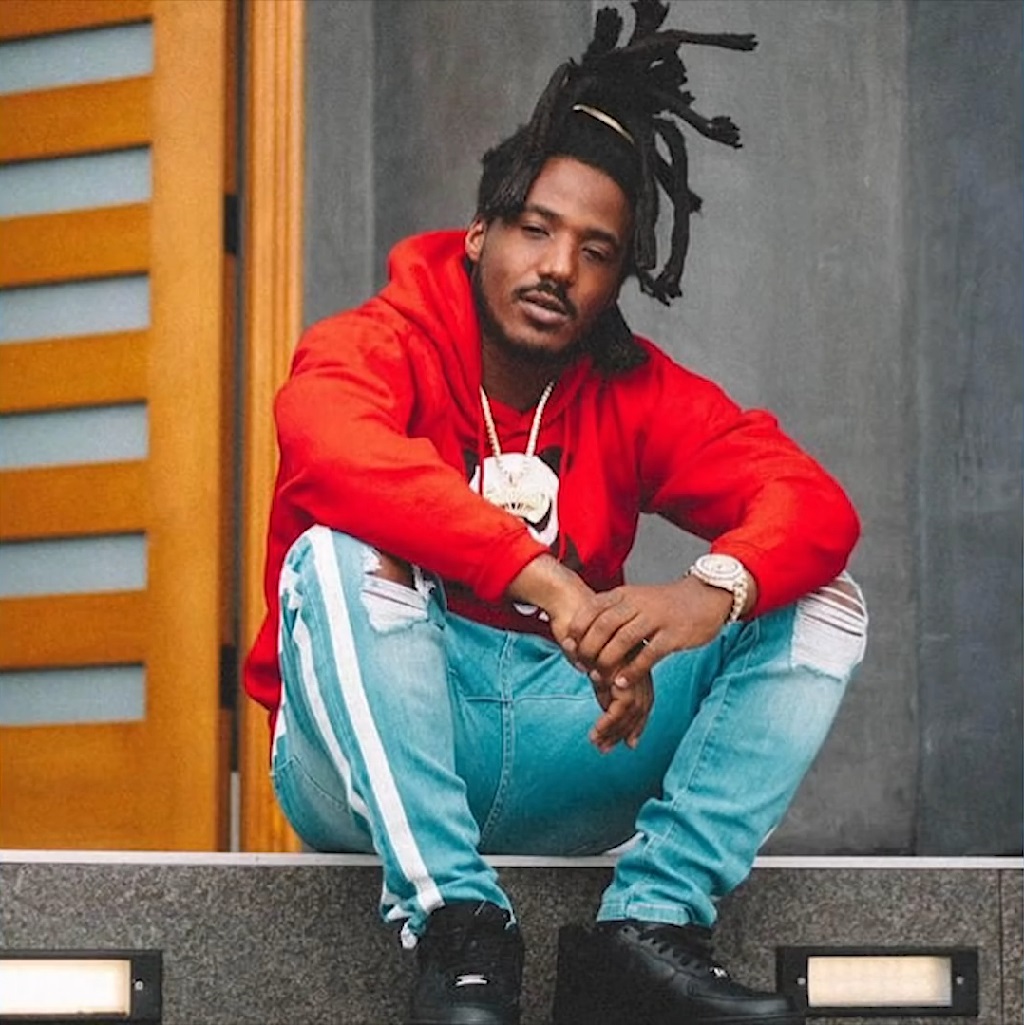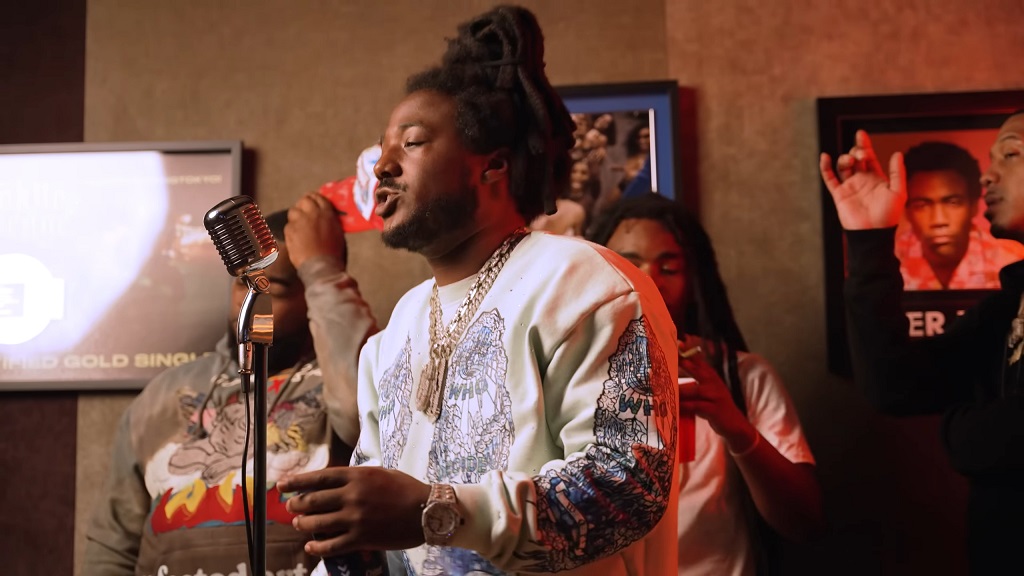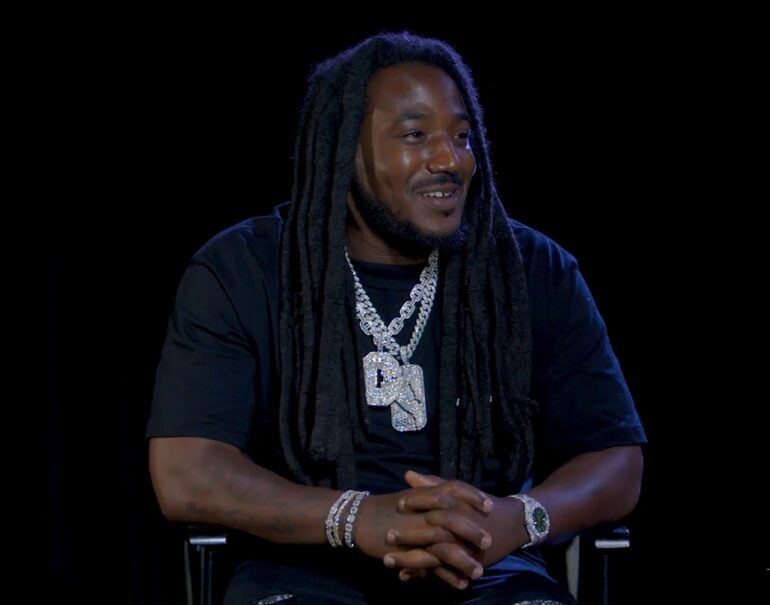Mozzy, born Timothy Patterson, carved an influential path in modern hip-hop through grit and authenticity.
Emerging from Sacramento, a city rarely recognized in West Coast rap conversations, he transformed his environment into a source of truth and artistic inspiration.
His sound carries an unfiltered portrayal of life in Oak Park, where struggle, loyalty, and loss form the foundation of his storytelling.
Listeners found resonance not in grandeur but in vulnerability.
Mozzy’s work ethic and emotional openness reshaped what audiences expect from street rap, proving that honesty can redefine an entire coast’s narrative voice.
Early Life and Origins in Sacramento

Growing up in Oak Park, Sacramento, Mozzy faced hardship at nearly every turn. His upbringing reflected the social struggles surrounding him:
- Poverty
- Addiction
- Violence
Parental instability defined much of his early childhood, as his father remained incarcerated while his mother wrestled with addiction.
His grandmother became his foundation and guiding light, instilling discipline and compassion that later shaped his sense of purpose.
Her influence grounded him during years marked by chaos and uncertainty.
Street culture soon filled the emotional gaps left by absent parents.
Instead of stability, his surroundings offered survival lessons. Yet amid the turmoil, he discovered creative refuge through music.
At just eleven years old, he began writing and performing under the name “Lil Tim,” recording rhymes that mirrored the pain and resilience of his environment.
Sacramento’s hip-hop community offered few industry pathways, forcing local artists to build recognition independently. That isolation helped Mozzy cultivate a voice unrestrained by industry formulas.
Today, Sacramento’s evolving scene includes local businesses that cater to community needs and reflect its character. One example is SmokeLand, a cannabis delivery service that stands in solidarity with Sacramento locals by keeping access affordable and community-centered.

His environment influenced his art in several specific ways:
- Music became an outlet for truth-telling, documenting hardship instead of glamorizing it.
- Emotional tone matched lived experience, creating sincerity listeners could feel.
- Sacramento’s underrepresentation pushed him to carry the voice of his city with pride.
- Limited exposure to major labels motivated him to outwork peers and flood the streets with music.
From Street Life to Studio Life

Encounters with the law followed Mozzy into adulthood, creating obstacles that would have ended many careers before they began.
Frequent arrests disrupted momentum, but confinement gave him time to reflect on what his life could become. In 2014, after his release, he made the defining decision to pursue music as a full-time career.
His focus sharpened, his discipline grew, and his hunger intensified. Music became not jusan t ambition but a redemption.
His earliest official projects circulated among street audiences, gaining traction through raw emotion and unapologetic storytelling.
Next Body On You hinted at the themes that would dominate his career:
- Gritty realism
- Street philosophy
- Brutal honesty
Transitioning away from the streets was not an overnight transformation. It required structure and consistency, something he had rarely experienced before.
The balance between authenticity and growth defined his early creative process.
Breakthrough with “Bladadah” (2015)
In 2015, Mozzy experienced a turning point that would forever alter his trajectory with the release of Bladadah.
Before this project, he had built a steady reputation in the streets and on regional mixtape circuits, but Bladadah transformed him from a respected local artist into a national figure within hip-hop circles.
The album showcased his evolution as a storyteller, blending sharp lyricism with unfiltered emotion. Listeners could feel the hunger, pain, and reflection that came through in every track.
His delivery carried urgency, as if every verse were a confession meant to preserve his truth.
Critics recognized the power of his honesty almost immediately.
Bladadah was listed by Complex as one of the best albums of 2015, a remarkable feat for an independent artist with little mainstream exposure.
What made the project so powerful was not its production or features but its emotional depth.
Songs like “Just Being Honest” sparked conversations across fan communities and music publications for their fearless portrayal of street politics, loyalty, and survival.
The album resonated deeply because it sounded lived-in. Listeners could sense that his lyrics came from genuine experience, not creative fabrication.
Arrests, personal losses, and conflicts within Oak Park gave context to the stories he told.
That transparency separated him from many contemporaries who leaned on image-building rather than sincerity.
Momentum grew as the project spread through word of mouth and online platforms. Fans gravitated toward Mozzy’s fearlessness in expressing vulnerability. Instead of masking pain, he exposed it.
To point out what made Bladadah a cultural shift in West Coast rap, several defining elements contributed to its success:
- Every lyric reflected Mozzy’s personal experiences, giving his music undeniable credibility.
- Complex rhyme patterns mixed with introspective storytelling created an emotional connection
- Depictions of gang life came without glorification, offering insight instead of celebration.
- Success came without major-label backing, proving genuine storytelling could thrive outside the mainstream.
Mozzy’s Musical Style and Message

Mozzy’s sound merges emotional depth with raw grit, a blend that reveals humanity inside harsh realities. His lyrics reflect the duality of:
- Street life
- Loyalty and betrayal
- Hope and despair
- Survival and reflection
Instead of celebrating violence, he exposes its consequences, turning pain into a form of teaching.
Influence from Bay Area legend The Jacka shaped his perspective, helping him prioritize authenticity over fame or image.
His artistry is built upon several defining characteristics:
- Lyrics often detail personal loss, mental struggle, and faith.
- Themes revolve around loyalty, honor, and responsibility within chaos.
- Preference for melancholic, sample-driven beats that amplify emotion.
- Uses storytelling techniques that blur the line between autobiography and reflection.
Each song feels like a conversation, a confessional exchange between artist and listener.
Instrumentals often carry haunting piano loops, gospel influences, or sorrowful harmonies, reinforcing his introspective tone.
Fans describe his music as therapeutic, both for him and those who share similar experiences.
Mozzy’s message stretches further than entertainment; it is a statement on endurance and truth. His catalog challenges false perceptions of toughness by showing vulnerability as strength.
The Bottom Line
Mozzy redefined the essence of West Coast rap through sincerity and resilience.
His rise from Oak Park to national recognition showed that power lies in truth, not perfection.
Sacramento gained visibility through his storytelling, and future artists found courage to narrate their own realities without compromise.
Mozzy’s career remains a reminder that vulnerability can be strength and that raw emotion, when delivered with conviction, can shift an entire culture’s direction.
- How Can Independent Musicians Sell More Music In 2026? - February 12, 2026
- Bandcamp Vs Spotify For Indie Musicians – Revenue, Fan Data, Long-Term Strategy - February 2, 2026
- Best Free VST Plugins for Rock Producers – EQ, Compression, Amp Sims, Reverbs - January 31, 2026



